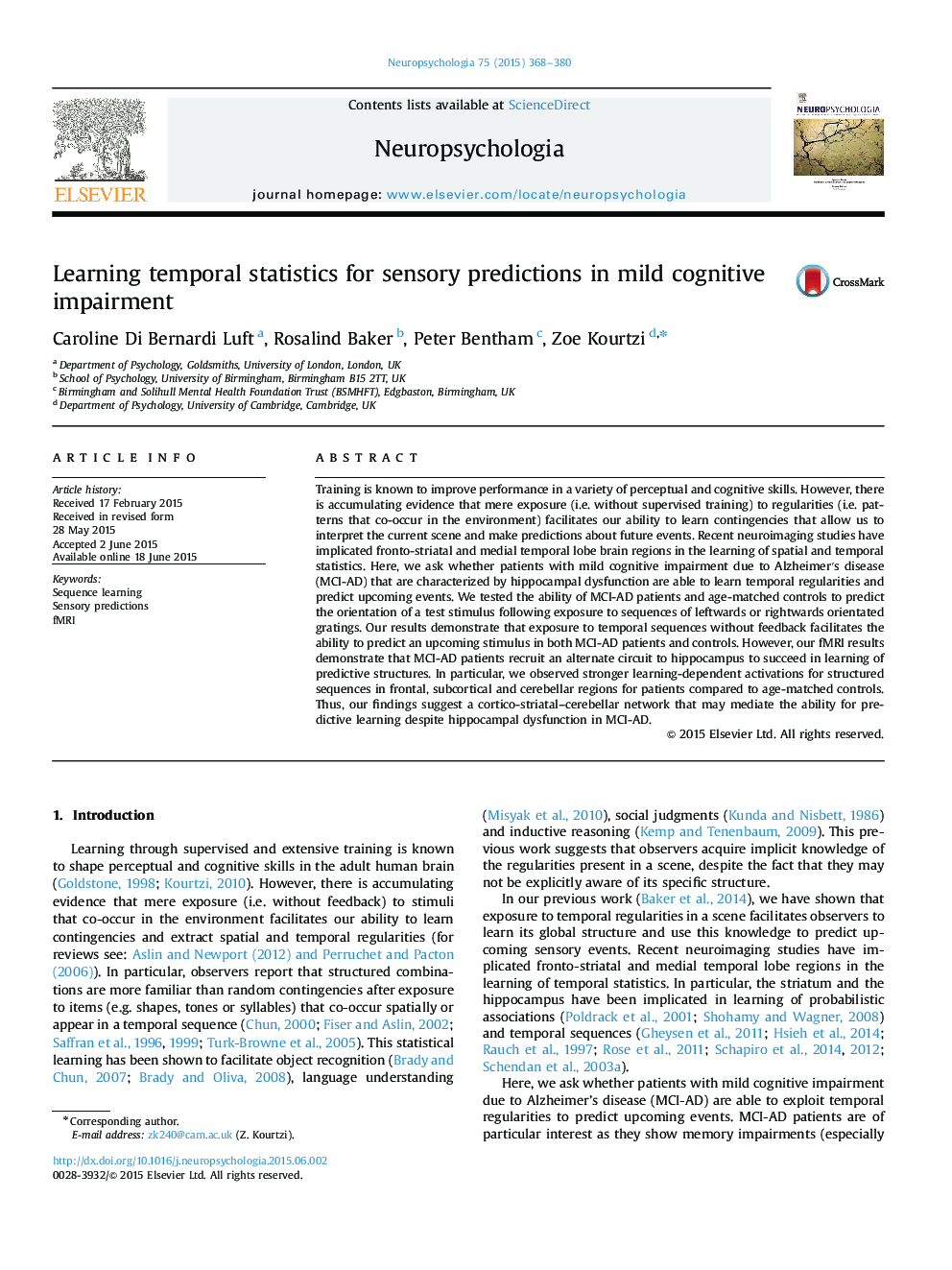| Article ID | Journal | Published Year | Pages | File Type |
|---|---|---|---|---|
| 7320091 | Neuropsychologia | 2015 | 13 Pages |
Abstract
Training is known to improve performance in a variety of perceptual and cognitive skills. However, there is accumulating evidence that mere exposure (i.e. without supervised training) to regularities (i.e. patterns that co-occur in the environment) facilitates our ability to learn contingencies that allow us to interpret the current scene and make predictions about future events. Recent neuroimaging studies have implicated fronto-striatal and medial temporal lobe brain regions in the learning of spatial and temporal statistics. Here, we ask whether patients with mild cognitive impairment due to Alzheimerâ²s disease (MCI-AD) that are characterized by hippocampal dysfunction are able to learn temporal regularities and predict upcoming events. We tested the ability of MCI-AD patients and age-matched controls to predict the orientation of a test stimulus following exposure to sequences of leftwards or rightwards orientated gratings. Our results demonstrate that exposure to temporal sequences without feedback facilitates the ability to predict an upcoming stimulus in both MCI-AD patients and controls. However, our fMRI results demonstrate that MCI-AD patients recruit an alternate circuit to hippocampus to succeed in learning of predictive structures. In particular, we observed stronger learning-dependent activations for structured sequences in frontal, subcortical and cerebellar regions for patients compared to age-matched controls. Thus, our findings suggest a cortico-striatal-cerebellar network that may mediate the ability for predictive learning despite hippocampal dysfunction in MCI-AD.
Keywords
Related Topics
Life Sciences
Neuroscience
Behavioral Neuroscience
Authors
Caroline Di Bernardi Luft, Rosalind Baker, Peter Bentham, Zoe Kourtzi,
